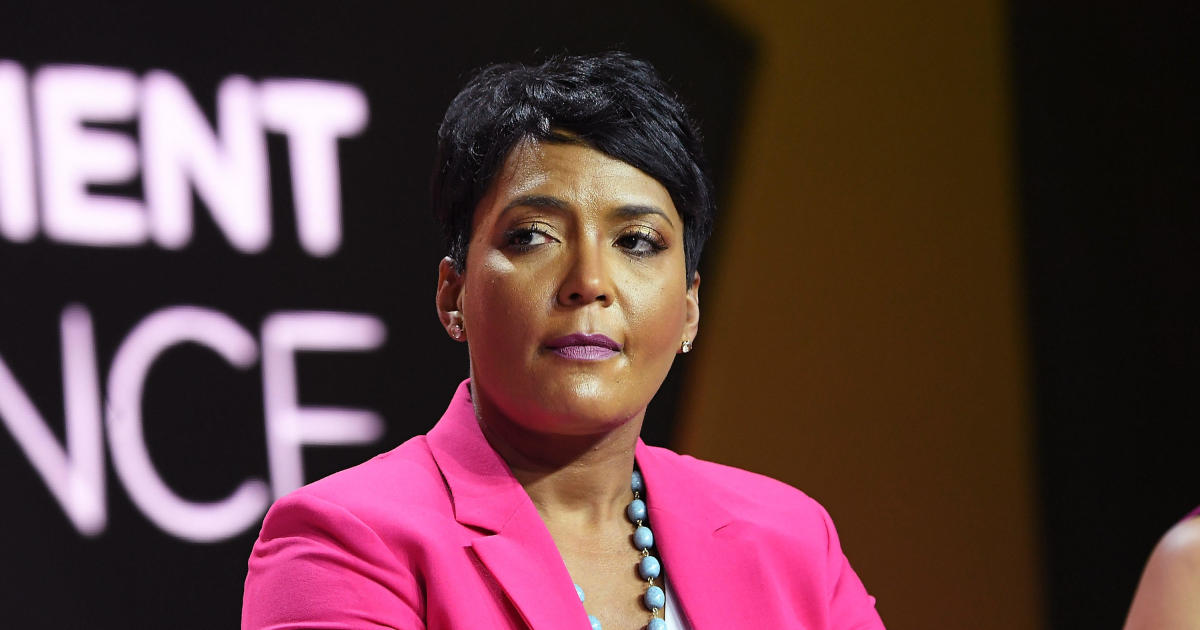
Atlanta Mayor Keisha Lance Bottoms is standing up against Georgia’s recent voter suppression law
The mayor recently signed an executive order to create a city-run program educating residents about the new voting guidelines.
On Tuesday, April 5, Atlanta Mayor Keisha Lance Bottoms signed an executive order meant to expand voting access in response to Georgia’s new voting restrictions, many of which disproportionately target people of color.
The mayor’s order instructs Atlanta’s chief equity officer to develop and initiate a plan within the city’s authority to minimize the effect of the state law, SB 202, which has created nationwide condemnation.
“The voting restrictions of SB 202 will disproportionately impact Atlanta residents ― particularly in communities of color and other minority groups,” Bottoms said in a statement.
“This Administrative Order is designed to do what those in the majority of the state legislature did not ― expand access to our right to vote,” she added.
ATL Mayor @KeishaBottoms has issued a new executive order, taking steps to reduce the impact of some parts of GA’s new voting law.
— Blayne Alexander (@ReporterBlayne) April 7, 2021
In a statement, she says law “will disproportionately impact Atlanta residents - particularly communities of color”
Here’s our @TODAYshow story: https://t.co/6Uua9ip7m4
The law was passed just a few weeks ago by Gov. Brian Kemp and Georgia’s GOP-controlled state legislature, enforcing a new wave of Election Day regulations.
These rules appear to target the very voters who contributed to record turnout in the 2020 presidential election, as well as January’s elections for two U.S. Senate seats, which turned the state blue for the first time in over 20 years.
The law was written with the supposed intention of ensuring transparency and fairness in elections, based on the false guise of voter fraud — a falsehood heavily pushed by former President Donald Trump and others in the Republican party.
No evidence was found to prove that any voter fraud occurred in 2020 or 2021, but Georgia, along 42 other states have been rushing to pass laws to prevent fraud.
But what these bills truly seek to do is make voting more difficult for the voters that broke major ground in the most recent elections.
The legislation reduces the time that voters can request absentee ballots, creates new photo ID requirements, and criminalizes offering food and water to voters waiting in line at precincts.
Atlanta’s new proposal includes a training program for staff to educate residents about early registration, absentee and in-person voting. The city will also work to ensure that residents understand how to acquire the ID forms now needed for absentee voting.
The hope, according to Bottoms, is that any city staff member will be able to give important voting information to Atlanta residents.
Bottoms spoke to Axios Re:cap on Tuesday, stating that Georgia’s situation is a “cautionary tale” for other cities and states.
RELATED CONTENT
“We’re also going to have to really continue to educate and encourage people to stand in the gap for voters across this state who may not have the ability to cast a vote, meaning we can’t go and vote for the president and then wait an additional four years,” Bottoms said.
The mayor also stressed that it’s even more important now for people to continue showing up for each and every election in consistently record numbers.
Make no mistake: Voter suppression has nothing to do with combatting nonexistent voter fraud.
— Robert Reich (@RBReich) April 5, 2021
Republicans are terrified of what Black voters in Georgia accomplished, and what that will mean for 2022.
It really is that simple.
“We’ve got to stand in the gap for those folks and make a difference in this state,” she said.
SB 202 has drawn criticism from civil rights groups, Democrats and dozens of businesses and executives.
Georgia-based corporations like Coca-Cola, Aflac and Delta Airlines have received plenty of backlash for not only staying silent on the issue, but for donating to some of the politicians sponsoring the legislation.
Eventually, many major corporations, including Coca-Cola and Delta have made statements opposing the voter restrictions, and Republicans in support of the law have blamed “cancel culture” for their actions.
Even Major League Baseball moved its summer All-Star game out of Georgia in solidarity with marginalized voters.
The MLB is moving the All-Star Game from Atlanta over Georgia’s new voting restrictions.
— CNN (@CNN) April 3, 2021
The law is “a horrible example for...the country, and people are going to show us exactly how they feel by keeping their dollars out of this state,” Atlanta Mayor Keisha Lance Bottoms says. pic.twitter.com/0HUAop0QEL
“Just as elections have consequences, so do the actions of those who are elected,” Bottoms tweeted Friday. “Unfortunately, the removal of the @MLB All Star game from GA is likely the 1st of many dominoes to fall, until the unnecessary barriers put in place to restrict access to the ballot box are removed.”











LEAVE A COMMENT: